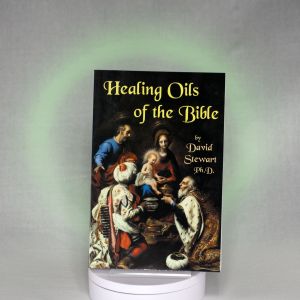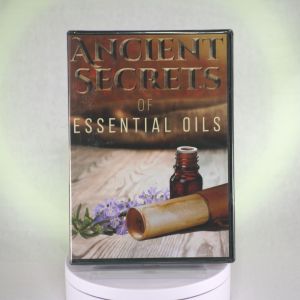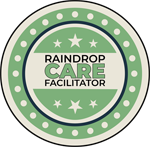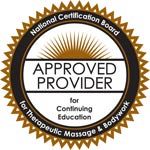Benefits of Being a Registered Aromatherapist
By David Stewart, Ph.D., R.A.
Originally Posted October 2003
Many users of essential oils are interested in obtaining a nationally recognized credential as a professional aromatherapist. At this time, there is only one such credential. It is through the Aromatherapy Registration
Council (ARC). The ARC is a non-profit organization registered in the state of Oregon and recognized as tax
exempt by the IRS. You can learn everything you need to know about them on their web site:
https://aromatherapycouncil.org/.
To become a Registered Aromatherapist or R.A. One need only to take and pass the ARC exam. It is a four-hour exam
administered several times a year throughout the United States. It is 100% multiple choice. There is a cost to take the exam of about $300, non-refundable. If you don’t pass, you have to pay the fee again and try once more. The exam is administered by the Professional Testing Corporation (PTC), 1350 Broadway, 17th Floor, New York, NY 10018. Their phone is (212) 356-0660. For information on currently scheduled examination dates and locations,
visit their web site at http://www.ptcny.com.
ANY YOUNG LIVING DISTRIBUTOR CAN PASS THE EXAM
Any Young Living distributor who is willing to study can pass the exam. The first thing you will need to do is to memorize the scientific names of all of the essential oils sold by YLEO. The test does not use any common names. Then memorize a few points about what each oil is most effective in treating. A couple of points about each oil is enough. There are some professional ethics you will need to know, but they are all in the literature that you can obtain from PTC or on the web sites. Be sure to be familiar with these points.
There will be questions on essential oil chemistry. The CARE Chemistry course contains all the information (and more) than you would need to pass this portion of the test. There will be some questions on distillation processes to obtain essential oils. Also expect some questions on human physiology and the body’s basic systems. The ARC brochure and web site actually gives you a complete outline of what to expect on the exam.
PITFALLS FOR YLEO DISBUTORS TO WATCH FOR
There will also be some questions on safety issues and contraindications in using essential oils and here is where those who use Young Living oils may have a problem. The problem is this. The makers of the ARC test are biased toward the British school. Most aromatherapy schools in North America (outside of YLEO) are British in their philosophy toward oils.
The basis of the British prejudice is that aromatherapy practice in that country come from the perfume industry where oils are synthetic, adulterated, and manipulated. Such oils are not safe to apply neat. But, as we know in Young Living, therapeutic grade oils are safe to apply neat.
The British school of aromatherapy does not believe it is safe to apply essential oils neat (undiluted) to the skin. Nor do they believe it is safe to take them orally. The British school considers the practice of aromatherapy to be the application of essential oils in massage diluted 95-98% with a carrier oil such as olive, jojoba, or other fatty oil.
FORBIDDEN OILS
There are also lists of oils that many British aromatherapists don’t use at all, even diluted, because they consider them too dangerous to use in aromatherapy or any purpose. The British lists of forbidden oils are not all the same, but almost all of them include wintergreen and tansey as taboo oils. Other oils that have been black-listed include basil, oregano, cassia, calamus, cinnamon, clove, savory, fennel, and thuja.
Of course, basil, oregano and wintergreen are oils that are safely applied neat in raindrop technique, a procedure that
has been experienced by tens of thousands of Americans with great benefits. But the British don’t recognize this,
and neither to the American aromatherapists who were trained in the British way of thinking.
Cassia, calamus, and cinnamon are part of the holy anointing oils decreed by God and used by Moses and Aaron in Biblical times (Exodus 30:22-31) and was safely used by the Israelites for more than twelve centuries.
And as for clove, it has been safely used neat in the oral cavity as a local antiseptic by dentists for more than 300 years. Clove oil is also the most concentrated antioxidant known and I personally take a capsule full every day with no
ill effects, only benefits.
THE ALLEGED TOXICITY OF TANSEY
As for the toxicity of wild (Idaho) tansy, one time when I was lecturing, there were some British oriented aromatherapists in the audience. They were being somewhat disruptive to my presentation when one of them raised her hand saying, “Isn’t tansy poisonous and should not be used?” I responded by saying, “Thank you for asking. It just happens that I have a bottle of tansy oil right here with me.” I then opened the bottle and poured a few drops directly in my mouth saying, “Let’s just find out if it is poisonous of not. If I am still alive at the end of my talk, then we will know.” With that, the hecklers shut up and, of course, I was still alive at the end of the program.
With respect to the ARC exam, keep the above thoughts in mind so that you can choose the right answers, from the ARC point of view, which may be contrary to your personal experience using YLEO oils. If there is a question on whether oils can be used neat, the politically correct answer will be to say no unless one of the multiple choices is melaleuca alternafolia or tea tree oil. The British make the exception melaleuca on the feet is okay. Some British also make an exception of lavender oil applied sparingly in special cases and some allow for lemon oil to be taken internally. But in general, the British don’t apply neat oils or take them orally at all. Of course, those of us who use
good therapeutic grade oils obtained from YLEO know better.
WHAT BOOKS TO STUDY
As for what books to study for the exam, the ARC brochure and web site will recommend several books, some of which
are quite expensive ($150 per copy) or difficult to find (because they are published in England). Having reviewed all of them on the list myself, I would recommend that you obtain only one of them. That is the book by Jane Buckle, RN, PhD, entitled Clinica Aromatherapy: Essential Oils in Practice, 2nd edition. Jane is British-born, but has an American residence, but her bias is British and so is her publisher, Churchill-Livingston. But the book is easily available through
any bookstore in this country who can order it for you. It is well written and contains just what you need to know to
pass the exam. Jane Buckle is one of the founders of the ARC and one of the authors of the ARC exam. You don’t need to spend the hundreds of dollars that I did in obtaining the whole list of books suggested by ARC. Save your money
and your time and get only this one book. There is an excellent short section on the chemistry of essential oils that will pretty much get you through anything that appears on the text. I agree with most of the book and disagree only with her ultra-conservative precautions and contraindications, which are British and incompatible with YLEO philosophy.
So there you have it. Memorize the Latin names of the oils, study the basics of aromatherapy found in the books YLEO promotes and ESP sells, and study Jane Buckle’s book to gain the British perspective so you can pass the test. Find a
friend and study together. It can actually be fun.
BECOME AN R.A. AND TEACH COLLEGE
So being an RA is worth something. It gives you professional status, the only professional status recognized throughout North America in aromatherapy. At this time, there are less than 100 people who have passed the exam.
The idea for a nationally recognized professional credential in aromatherapy actually originated among members of NAHA, the National Association of Holistic Aromatherapists. Many NAHA members consider themselves to be the most knowledgeable leading authorities in the field of essential oils and often look down their noses disparagingly at Young Living distributors. However, as Young Living distributors, it may interest you to know that less than 5% of the1200 members of NAHA are RAs. Meanwhile, there are hundreds of thousands of YLEO members. One of the privileges one gains by passing the exam is that you may, if you choose, submit questions to ARC be included on the next exam. I say go for it.
Would you Shower in Soda Pop and Expect to be Clean?
by David Stewart, Ph.D., R.A.
When you do or receive raindrop technique or use oils in any way on a regular basis, you will naturally start detoxing. This is good. However, you must be careful to drink lots of water so that the detox will be mainly through your kidneys and colon. Detox is also accomplished through the breath and sweat glands, as well. One needs to make sure they don’t detox so fast that the toxins coming through the skin don’t cause a temporary rash. If a rash does result from raindrop or from oils received in other ways, start drinking lots of water. Take your body weight in pounds and
divide by two and take that number of ounces of water every day.
When I give that advice, some people say, “well I don’t really like water, but I drink lots of coffee or tea or soda or juice, etc. etc. Wouldn’t that be just as good?” they say. I usually reply, “Well, if you wanted to mop your kitchen floor clean, would it be cleaner if you rinsed it with a bucket of clear water or with a bucket of soda pop or fruit juice?”
Most of us are conscientious about external hygiene and cleanliness. Most of us shower or wash up every day because waste products from our sweat glands accumulate on our skins and can cause unpleasant body odors. In addition, we are constantly encountering pollutants, particles, and dirt of all kinds in our environment that soil our skin and hair, so we take baths regularly. We use soap to help loosen and dissolve the substances on our skins, but we always rinse in clear water. Otherwise, we wouldn’t be clean. We would have, at least, a residue of soap. So if clear water is necessary to wash and cleanse our external body, why would we think that something other than clear water is necessary to wash and cleanse our internal body?
WATER VS. COLA
I recently received this information on water vs. Coca Cola. I have
not checked to see if everything stated below is true and accurate,
but even if only half of it is true, the point is well made.
- 75% of Americans are chronically dehydrated.
- In 37% of Americans, the thirst mechanism is so weak that it is often mistaken for hunger.
- Even mild dehydration will slow down one’s metabolism as much as 3%.
- One glass of water will shut down midnight hunger pangs for almost 100% of dieters studied in a University of Washington Study.
- Lack of water is the #1 trigger of daytime fatigue.
- Preliminary research indicates that 8-10 glasses of water a day could significantly ease back and joint pain for up to 80% of sufferers.
- A mere 2% drop in water can trigger fuzzy short-term memory trouble with basic math, and difficulty focusing on the computer screen or on a printed page.
- Drinking 5 glasses of water daily decreases the risk of colon cancer by 45%, plus it can slash the risk of breast cancer by 79%. One is also 50% less likely to develop bladder cancer.
And Now for the Properties of “COLA.”
- In many states the highway patrol carries 2 gallons of Cola in the trunk to remove blood from the highway after a car accident.
- You can put a T-bone steak in a bowl of cola and the steak will be gone in two days.
- To clean a toilet, pour a can of cola into the toilet bowl and let it set for one hour, then flush clean. The acid in cola removes stained from vitreous china.
- To remove rust spots from chrome car bumpers, rub the bumper with a rumpled-up piece of aluminum foil dipped in cola.
- To clean corrosion from car battery terminals, pour a can of cola over the terminals to bubble away corrosion.
- To loosen a rusted bolt, apply a cloth soaked in cola to the rusted bolt for several minutes.
- To make a moist ham, empty a can of cola into the baking pan, wrap the ham in aluminum oil & bake. Thirty minutes before the ham is ready, remove the foil allowing the drippings to mix with the cola for a sumptuous brown gravy.
- To remove grease from clothes, empty a can of cola into a load of clothes, add detergent, and wash on the regular cycle.
- Cola will also clean road haze from your windshield.
For Your Information:
The active ingredient in cola is phosphoric acid. Its Ph is 2.8. It will dissolve a nail in about 4 days. Phosphoric acid also leaches calcium from bones and is a major contributor to the rising increase in osteoporosis.
To carry cola syrup (the concentrate) commercial trucks must use the hazardous material place cards reserved for highly corrosive materials.
The distributors of cola have been using it to clean the engines of their trucks for about 20 years.
Now the question is: Would You Like a Glass of Water or Cola?








